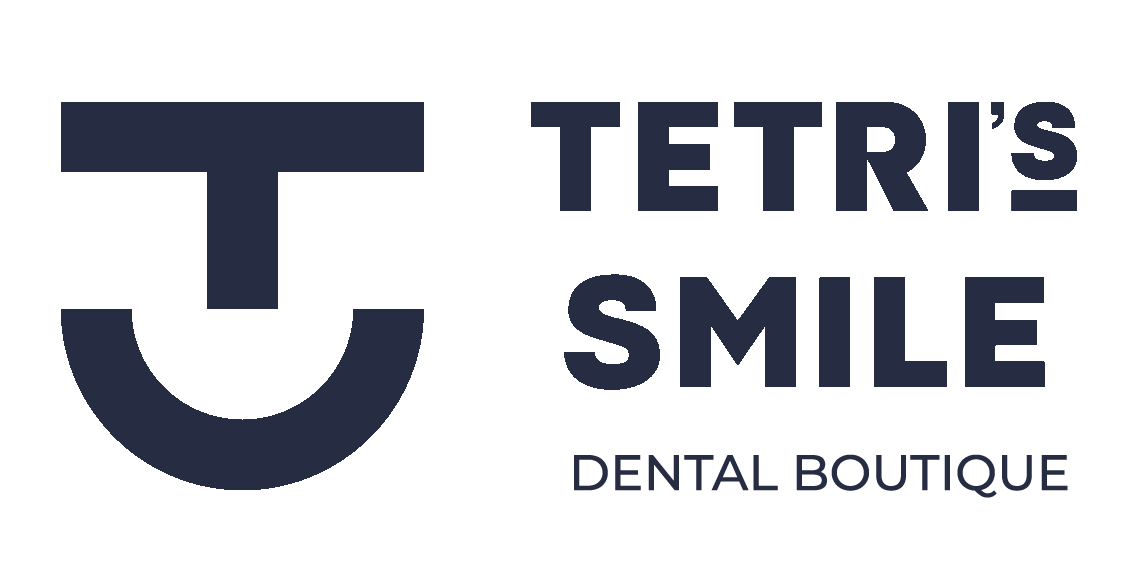Braces
At Tetri’s Smile in Sunny Isles Beach (Miami, Florida), we provide orthodontic treatment with braces for children and adults.
What are braces, and how do they work?
A brace system is a fixed orthodontic structure consisting of:
Metal or ceramic plates glued to the outer surface of each tooth. Each plate has a slot or a special lock.
The arch fixed in the brace slots or special locks, providing the required tension of the arch. The arch pulls the dentition, trying to return to its original shape, and the teeth begin to move into position under constant pressure.
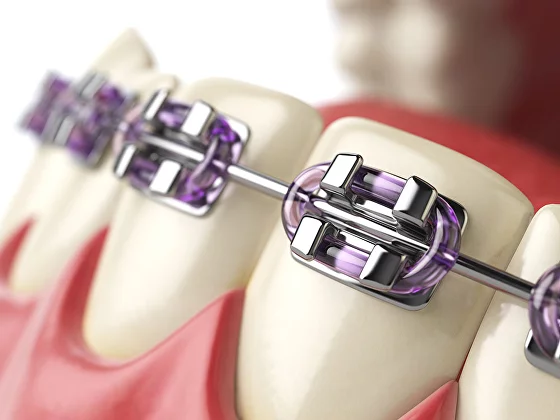
Who will benefit from braces? Patients with:
Tremae or diastemas
Tooth shape defects
Displacement of teeth to the tongue, cheek, lips
Teeth crowding or overlapping
Changes in the jaw shape
Abnormal position of the lower jaw
Braces – price
Orthodontics dentist near me?
If you need a top-rated orthodontics dentist in Miami, welcome to Tetri’s Smile! Dr. Svitlana Koval is a general dentist limited to orthodontics with more than 12 years of experience.
Tetri’s Smile Dental Boutique in Miami, FL, is a health care provider that solves even the most difficult clinical cases. Often, people who have been rejected at other clinics and have lost all hope come to us. But Dr. Koval (orthodontics dentist) and Dr. Tetri (gneuromuscular dentist) are always ready to do the impossible!
No wonder people come to us from all over the world. And then they come back with relatives or friends asking for help as well.
We make a detailed treatment plan. All the work will be done by Dr. Tetri’s team; we take full responsibility for the result!
All you have to do is follow the treatment plan. Each visit is a step toward a beautiful smile.
Watch a video of one of such visits.
“Some people are hesitant to get braces because they’re not ready to wear them for an average of a year and a half. We offer accelerated orthodontic treatment to our patients. It is possible with a piezocision procedure which reduces the period of wearing braces by 4–5 times. For example, instead of eighteen months, treatment will take five months at most.”
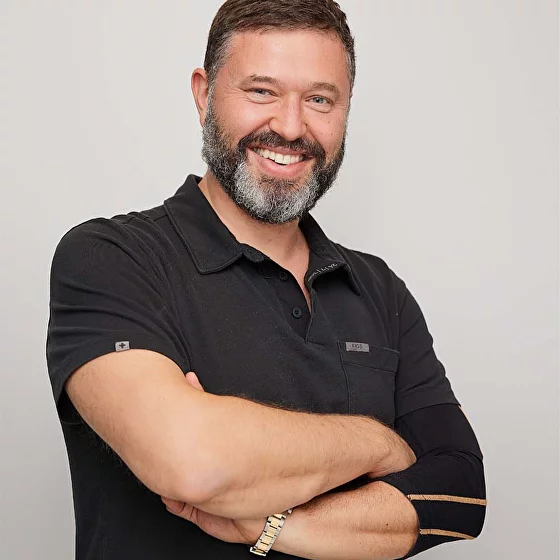
Dental brace types
By arch fixation
The arch is fixed to the plates with rubber bands (silicone or metal). It’s tightly clamped and can’t slip
The plates have a micro-lock that snaps into place once the arch is secured in the slot. The arch is held firmly in the plates but can slide along the slot
BY PLATE MATERIAL
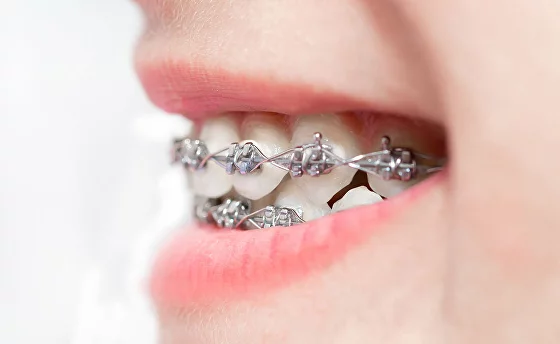
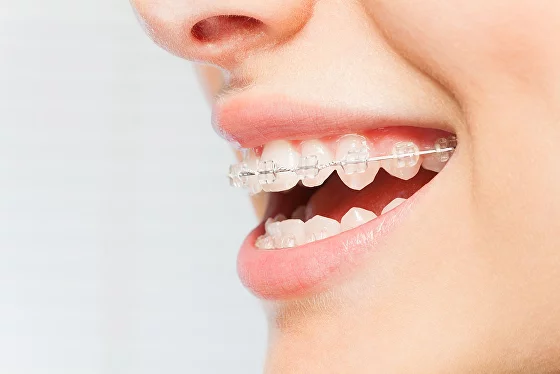
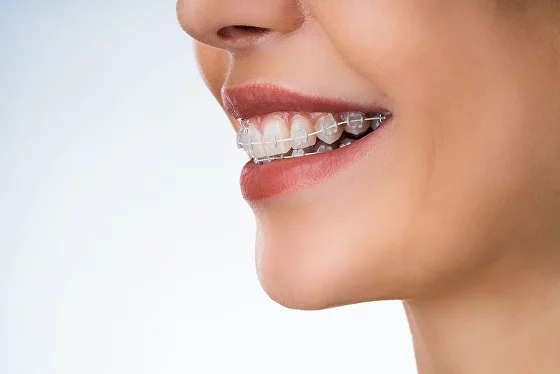
Dental braces procedure at Tetri’s Smile
1. Hardware examination of the bite
A CT scan in the 3D plane is performed for an in-depth condition assessment of the maxillary system. CT scans allow the doctor to assess the face proportions, the harmony of the maxillary system, the size and location of the jaws relative to the skull, determine the level of root inclination relative to the bone, etc.
CT scans help to rule out hidden caries, cysts, or granulomas, and a cracked tooth root. Complications during orthodontic treatment with braces can be avoided if they are detected in time.
We perform additional neuromuscular examinations if there is a chance of temporomandibular joint disorders:
- CMS (jaw tracking) helps to study mandibular trajectories and determine central occlusion
- EMG (electromyography) helps to monitor the condition of the facial muscles at rest and during work in real-time
- ESG (electrosonography) helps to assess the condition of the temporomandibular joint by analyzing vibrations or noises at mouth opening and closing.
to plan the correct treatment taking into account the clinical picture
An in-depth, comprehensive examination of the dental and maxillary system with GNM is the key to a well-predictable treatment outcome.
Dr. Tetri is one of several specialists in gneuromuscular dentistry in Florida!
2. Taking impressions
Digital impressions are taken with an intraoral scanner. They are uploaded into a special computer program that simulates the process of teeth alignment. The patient will be able to see their future smile before orthodontic treatment even begins.
3. Full mouth debridement
It is imperative to remove plaque or stone, treat decayed teeth, and cure existing inflammation before braces are placed.
4. Placing braces
Braces (plates) are glued to the surface of the enamel, and the orthodontic arch is threaded through them. After consulting with the patient, a piezocision procedure may be performed 2-3 weeks after the placement of the orthodontic structure to accelerate tooth movement.
5. Retention period
A retainer is placed to stabilize the results of the treatment. It fixes the teeth, preventing them from shifting back into their former position before the orthodontic treatment begins.
What are the dangers of an untreated bite anomaly?
Normally, the teeth of the lower and upper jaws are located symmetrically, with the upper incisors slightly overlapping the lower ones. Any deviation from the norm is called a malocclusion. Without correction, it leads to serious consequences:
Frequent headaches, migraines, jaw clicking, pain in the ears
Unequal distribution of the chewing load leads to abrasion, chipping, and eventually to premature tooth loss
Malocclusion makes it difficult to chew food properly. This increases the load on the gastrointestinal tract, leading to various diseases
Malocclusion directly affects the condition of the spine. The center of gravity may shift, and the cervical vertebrae may also shift as a consequence
